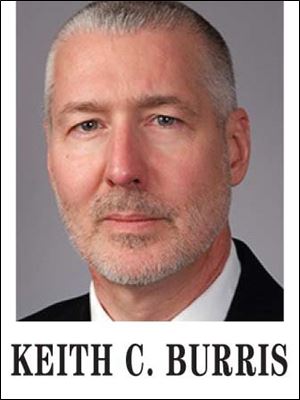
COMMENTARY
Poli Sci 101: ‘Politics ain’t beanbag’
4/25/2014
Years ago, in what seems like another life, I was a political science professor — a green and naive one — at Washington Jefferson College, near Pittsburgh. I taught at other places as well.
The most fun I had was in the graduate public policy program at Trinity College in Hartford, which I did part time while working as a newspaperman. I brought in city politicians to talk about Jane Jacobs and Lewis Mumford. And state politicians and judges to talk about how laws are really made and judicial decisions drawn. Great fun.
I was impressed at how real politics informed theory. These days, I am impressed at how political science informs the news. For example:
● Power changes people.
And usually not for the better, as Lord Acton wrote. He said: “Power corrupts and absolute power corrupts absolutely.”
Even people who go into politics for noble reasons sometimes get to feel they are entitled. That's how some politicians wind up disgraced or in jail.
● Checks and balances work. We not only need the branches of government checking each other, but we need the press checking government — especially at the state and local level. The withdrawal of newspaper coverage from so many of our state capitols has serious ramifications for democracy.
● Events trump agendas.
Candidates run for president, governor, or mayor with a plan. They get to office and find out events mold them.
George W. Bush wanted to be an education president. He became a war president. Barack Obama wanted to change the negative, highly partisan culture of Washington. Mike Collins is finding out that executives execute, but mostly, they react.
● Great leaders make deals.
The late Sen. Barry Goldwater was a fine and upstanding senator. But if, back in the day, you wanted to get legislation passed, you went to Sen. Lyndon Johnson — the great compromiser; the master legislator.
You want to get elected? You have to be Goldwater, circa 1964. You want to get things done? You must be LBJ, circa 1958.
● Our system is based on enlightenment values and 18th century political mechanics. What is the greatest enlightenment value? That there is never one truth; there are several. So there is never one man, or party, or interest with the truth. There are several. Isaiah Berlin, our greatest modern enlightenment mind, calls this truth pluralism. It is the philosophical grounding of liberty and tolerance.
When I was learning to be a political science professor, at the University of Pittsburgh, I studied with three wonderful teachers: John W. Chapman, a distinguished political philosopher in the tradition of Mr. Berlin; Richard Cottam, this nation's leading scholar on Iran in the 1970s, and William Keefe, a leading expert on Congress. They taught me that, as Mr. Dooley put it, “Politics ain't beanbag.”
It may not change the world. But it can make a world of difference in more than a few lives.
Contact him at: kburris@theblade.com or 419-724-6266.